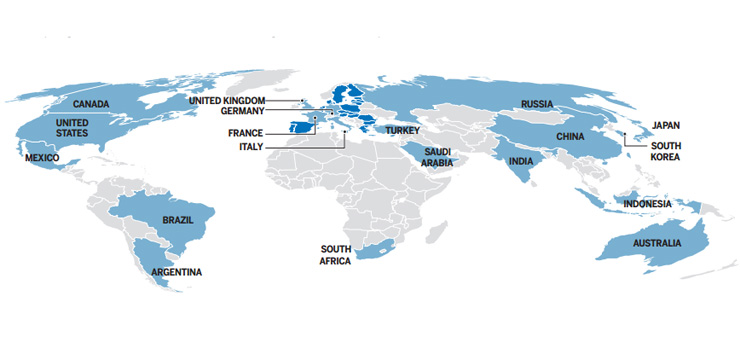Why climate change top G20 economic issue: UN expert
BRISBANE -- Climate change is closely linked to economic progress and G20 leaders need to address this important issue during the Brisbane summit, said a leading United Nations environmentalist in a recent interview with Xinhua.
Achim Steiner, executive director of the United Nations Environmental Program (UNEP), said climate change is relevant to the G20 because many of the decisions regarding infrastructure investment are dependent on economic policy choices.
"You can't get away from the economic part of climate change. It affects the economy," Steiner said.
The issue of climate has sparked debates on the eve of the G20 leaders summit in Brisbane, with Australian Prime Minister Tony Abbott saying on Friday that economic growth, not climate change, should be the main focus for world leaders attending the event.
However, U.S. State Department senior spokeswoman Jen Psaki said that at the G20 meeting "there will be a focus on economic issues and how we are co-ordinating with the global economy. Climate in our view is part of that."
As the debate continued, Steiner said that climate change is a challenge and a threat but it was also an opportunity for nations to rethink their investment strategies.
He said a great number of severe natural disasters, such as floods, caused by climate change can cause enormous impact on economies and threaten the very existence of small island nations.
"A number of percentage points of GDP are wiped out by disasters and there is the impact on coastal infrastructure," he said.
"When planning for infrastructure the question is: do you invest in fossil-fuel powered infrastructure or look at alternative energy sources?"
Steiner said many countries, such as Germany, Denmark, Spain, and Portugal already had a quarter to a third of their infrastructure investment channeled into renewable energy.
He said the recent U.S.- China climate change pact was groundbreaking. Under the deal, the United States has set an emissions-cut target of up to 28 percent below 2005 levels by 2025 and China has vowed to cap growing carbon emissions by 2030.
"It is very significant, and a symbolic milestone has been made. It shifts the ground for the rest of the world and has significant impact," Steiner said.
Steiner said the collective environmental security of the world is also a matter of finance.
"Most obvious is the public finance needed to safeguard our environmental commons--from the water we drink and the air we breathe to the stewardship of vulnerable biodiversity essential to our circular economy, such as the endangered bee population whose pollinating activities are so vital to food production," Steiner said.
Related Stories
British PM joins world leaders for Australia's G20 summit 2014-11-14 09:34
Eggs, reptiles and surfboards banned for G20 2014-11-14 08:08
G20 expected to OK anti-graft deal 2014-11-14 08:06
China expects G20 summit to achieve results in four areas 2014-11-13 18:11
Anti-corruption an agenda for G20 summit 2014-11-13 17:07
Police gear up ahead of G20 summit in Brisbane 2014-11-13 15:38
G20 to focus on economic growth, not climate change 2014-11-13 14:09
IMF calls on G20 to boost growth 2014-11-13 10:28
Background



